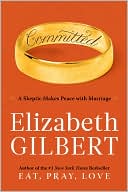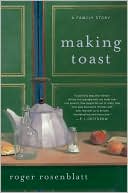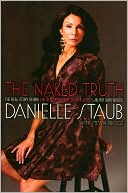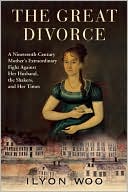Passing Strange: A Gilded Age Tale of Love and Deception Across the Color Line
The secret double life of the man who mapped the American West, and the woman he loved\ Clarence King was a late nineteenth-century celebrity, a brilliant scientist and explorer once described by Secretary of State John Hay as "the best and brightest of his generation." But King hid a secret from his Gilded Age cohorts and prominent family in Newport: for thirteen years he lived a double life-the first as the prominent white geologist and writer Clarence King, and the second as the black...
Search in google:
Noted historian Martha A. Sandweiss tells the uniquely American story of Clarence King, a man who hid from his Gilded Age cohorts and prominent family the fact that he lived a double life—-as the celebrated white explorer, geologist, and writer King and as a black Pullman porter and steelworker named James Todd. The New York Times - Janet Maslin Passing Strange tells an astounding true story that would beggar most novelists' imaginations…Ms. Sandweiss offers a fine, mesmerizing account of how one extremely secretive man, "acting from a complicated mix of loyalty and self-interest, reckless desire and social conservatism," could encapsulate his country's shifting ideas about race in the course of one family's anything but black-and-white history.
Prologue: An Invented Life 1Pt. 1 Clarence King and Ada Copeland1 Becoming Clarence King 132 King of the West 473 Becoming Ada Copeland 714 King of the City 97Pt. 2 James and Ada Todd5 New Beginnings 1316 Family Lives 1587 Breakdowns 1858 Endings 212Pt. 3 Ada King9 On Her Own 24710 The Trial 277Epilogue: Secrets 302Acknowledgments 307Notes 313Index 359
\ Annette Gordon-Reed…there was another side to King that neither the public nor his glittering friends knew, a side that Martha A. Sandweiss explores with great sensitivity, insight and painstaking research in Passing Strange. The title of this immensely fascinating work provides a broad hint: King lived a racial double life…Passing Strange is ultimately a book about a couple, and Sandweiss has used her formidable skills as a researcher to reconstruct as much of their lives as possible.\ —The Washington Post\ \ \ \ \ Janet MaslinPassing Strange tells an astounding true story that would beggar most novelists' imaginations…Ms. Sandweiss offers a fine, mesmerizing account of how one extremely secretive man, "acting from a complicated mix of loyalty and self-interest, reckless desire and social conservatism," could encapsulate his country's shifting ideas about race in the course of one family's anything but black-and-white history.\ —The New York Times\ \ \ Publishers WeeklySandweiss (Print the Legend) serves a delicious brew of public accomplishment and domestic intrigue in this dual biography of the geologist-explorer Clarence King (1842-1901) and Ada Copeland (c. 1861-1964), a "black, working-class woman" who was "born a slave." Rendered as fiction, this true tale, would seem quite implausible-"a model son of Newport and one of the most admired scientists in America," Clarence kept secret for 13 years his marriage to Ada and their apparently contented domestic life. He kept his patrician past and celebrated present concealed as well from his wife, who believed herself the wife of James Todd, a black Pullman porter. Sandweiss provides a fascinating account of King's "extraordinary double life as an eminent white scientist and a black workingman"; Ada's struggle "through the legal system to assert her rightful name, give her children their true familial history, and [unsuccessfully] claim the trust fund she believed to be hers"; and rich insights into the "distinctive American ideas about race" that allowed King to "pass the other way across the color line, claiming African ancestry when he had none at all." (Feb.)\ Copyright © Reed Business Information, a division of Reed Elsevier Inc. All rights reserved.\ \ \ \ \ Library JournalAmerican West historian Sandweiss (American studies & history, Amherst Coll.; Print the Legend) utilizes archival, newspaper, and a panoply of digitized resources to analyze the personal and social complexity of the life of noted surveyor and geologist Clarence King (1842-1901). King, the scion of a storied white New England family, passed as the purported Pullman porter James Todd in order to espouse his African American common-law wife, Ada Copeland Todd King. Unlike previous King biographers (e.g., Robert Wilson, The Explorer King), Sandweiss treats in detail the challenges and dilemmas that King confronted in post-Civil War America, even in relatively tolerant New York City. Balancing scholarly exploration with readability, she focuses on King's 13-year secret (until he was on his deathbed, King kept the fact of his actual race from his wife), which produced acute psychological strains. History learned of it with a legal claim for his trust fund in 1933. Sandweiss demonstrates just how racial identity and inequality circumscribes behavior, adding both general background and individual perspectives on the conundrum of race in America. Her literary references add to a historical narrative that should catch the attention of both specialists and the reading public. A welcome choice for both academic and public libraries.\ —Frederick J. Augustyn\ \ \ \ \ \ Kirkus ReviewsOne of the best-known men of his time crosses the racial divide-in reverse. Well-born traveler, scientist, explorer and writer Clarence King enjoyed great privilege. In the words of Western historian Sandweiss (American Studies/Amherst Coll.; Print the Legen: Photography and the American West, 2002, etc.), he went through life "tempted by risk and attracted to the exotic but fearful of losing the social prerogatives that defined his place in the world." When King returned from his globetrotting expeditions and settled down in New York to enjoy his fame as the bestselling author of Mountaineering in the Sierra Nevada, he embarked on a romance with an African-American woman named Ada Copeland. A young nursemaid who moved north from Georgia in the mid-1880s, she apparently met King sometime in 1887 or early 1888 while he was out "slumming." That word, the author explains, denoted a class-crossing "fashionable amusement," according to the Saturday Evening Post. King was serious about his courtship of Copeland, but it was fraught with peril for all concerned, presenting threatening possibilities for blackmail on the one hand and abandonment on the other. He decided to present himself to her as a Pullman porter named James Todd, an invented identity that "hinged not just on one lie but a cluster of related, duplicitous assertions." As Sandweiss notes in this sturdy work, which blends elements of social and intellectual history with biography, thousands of light-skinned blacks in that era tried to pass for white, but the number of those who did the opposite must have been tiny. Yet King married Copeland and gave up his cherished social privileges. She had borne him five children, and he wason his deathbed in 1901, when he finally told her the truth. An intriguing look at long-held secrets, Jim Crow, bad faith-and also, as Sandweiss observes, "love and longing that transcends the historical bounds of time and place."\ \ \ \ \ From the Publisher"Ms. Sandweiss offers a fine, mesmerizing account." —-The New York Times\ \








